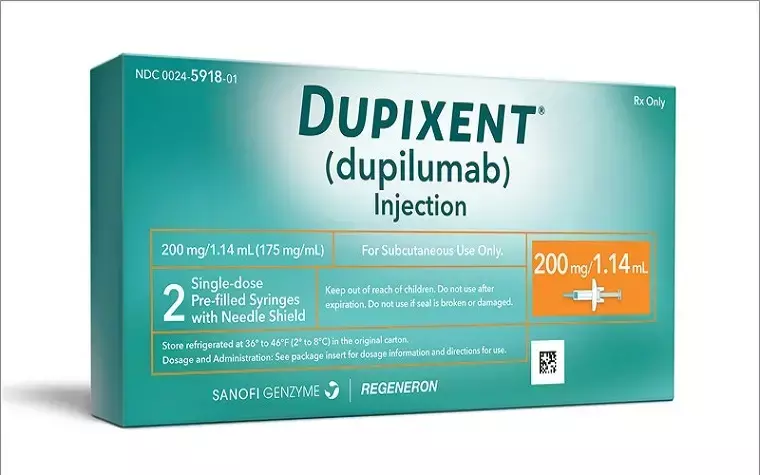- Home
- Medical news & Guidelines
- Anesthesiology
- Cardiology and CTVS
- Critical Care
- Dentistry
- Dermatology
- Diabetes and Endocrinology
- ENT
- Gastroenterology
- Medicine
- Nephrology
- Neurology
- Obstretics-Gynaecology
- Oncology
- Ophthalmology
- Orthopaedics
- Pediatrics-Neonatology
- Psychiatry
- Pulmonology
- Radiology
- Surgery
- Urology
- Laboratory Medicine
- Diet
- Nursing
- Paramedical
- Physiotherapy
- Health news
- Fact Check
- Bone Health Fact Check
- Brain Health Fact Check
- Cancer Related Fact Check
- Child Care Fact Check
- Dental and oral health fact check
- Diabetes and metabolic health fact check
- Diet and Nutrition Fact Check
- Eye and ENT Care Fact Check
- Fitness fact check
- Gut health fact check
- Heart health fact check
- Kidney health fact check
- Medical education fact check
- Men's health fact check
- Respiratory fact check
- Skin and hair care fact check
- Vaccine and Immunization fact check
- Women's health fact check
- AYUSH
- State News
- Andaman and Nicobar Islands
- Andhra Pradesh
- Arunachal Pradesh
- Assam
- Bihar
- Chandigarh
- Chattisgarh
- Dadra and Nagar Haveli
- Daman and Diu
- Delhi
- Goa
- Gujarat
- Haryana
- Himachal Pradesh
- Jammu & Kashmir
- Jharkhand
- Karnataka
- Kerala
- Ladakh
- Lakshadweep
- Madhya Pradesh
- Maharashtra
- Manipur
- Meghalaya
- Mizoram
- Nagaland
- Odisha
- Puducherry
- Punjab
- Rajasthan
- Sikkim
- Tamil Nadu
- Telangana
- Tripura
- Uttar Pradesh
- Uttrakhand
- West Bengal
- Medical Education
- Industry
Dupilumab therapy against Atopic dermatitis associated with conjunctivitis

Dupilumab had an 86% two-year medication survival rate, however it was ineffective for treating atopic dermatitis (AD) in the head and neck, and 25% of patients had conjunctivitis, says an article published in Journal of the European Academy of Dermatology and Venereology.
After approval, it is crucial to assess the efficacy and safety of novel systemic therapies for atopic dermatitis (AD). There aren't many published studies using dupilumab longer than 52 weeks. In order to investigate the safety, efficacy, and drug survival of dupilumab in a Danish national cohort with moderate-to-severe AD up to 104 weeks exposure, Vittrup and company carried out this study. 347 adult AD patients who received dupilumab treatment and were recorded in the SCRATCH registry between 2017 and 2022 were included in this study.
The key findings of this study were:
1. Eczema Area and Severity Index (EASI) [median (IQR)] measurements of AD severity showed improvement at all visits.
2. EASI score at baseline was 18.0 (10.6-25.2); at weeks 4, 16, and 52, it was 6.5 (3.5-11.6), 3.7 (1.2-6.2), and 1.7 at weeks 104. (0.8-3.8).
3. While medication survival rates were excellent (week 52: 90%; week 104: 86%), the majority of patients continued to have significant levels of AD in the head and neck region; the proportion of patients with head and neck AD at baseline was 76% and 68% at week 104.
4. Any AE was reported by 35% of subjects.
5. The most prevalent condition was conjunctivitis, which affected 25% of all patients, and its first diagnosis took 201 days on average to manifest.
In this trial, the researchers observed sustained medication persistence after 104 weeks and reported no new safety signals with extended dupilumab therapy. Notably, dupilumab was ineffective in treating AD in the head and neck.
Reference:
Vittrup, I., Krogh, N. S., Larsen, H. H. P., Elberling, J., Skov, L., Ibler, K. S., Jemec, G. B. E., Mortz, C. G., Bach, R. O., Bindslev‐Jensen, C., Dalager, M. G., Egeberg, A., Agner, T., Deleuran, M., Vestergaard, C., & Thyssen, J. P. (2023). A nationwide 104 weeks real‐world study of dupilumab in adults with atopic dermatitis: ineffectiveness in head‐and‐neck dermatitis. In Journal of the European Academy of Dermatology and Venereology. Wiley. https://doi.org/10.1111/jdv.18849
Neuroscience Masters graduate
Jacinthlyn Sylvia, a Neuroscience Master's graduate from Chennai has worked extensively in deciphering the neurobiology of cognition and motor control in aging. She also has spread-out exposure to Neurosurgery from her Bachelor’s. She is currently involved in active Neuro-Oncology research. She is an upcoming neuroscientist with a fiery passion for writing. Her news cover at Medical Dialogues feature recent discoveries and updates from the healthcare and biomedical research fields. She can be reached at editorial@medicaldialogues.in
Dr Kamal Kant Kohli-MBBS, DTCD- a chest specialist with more than 30 years of practice and a flair for writing clinical articles, Dr Kamal Kant Kohli joined Medical Dialogues as a Chief Editor of Medical News. Besides writing articles, as an editor, he proofreads and verifies all the medical content published on Medical Dialogues including those coming from journals, studies,medical conferences,guidelines etc. Email: drkohli@medicaldialogues.in. Contact no. 011-43720751


